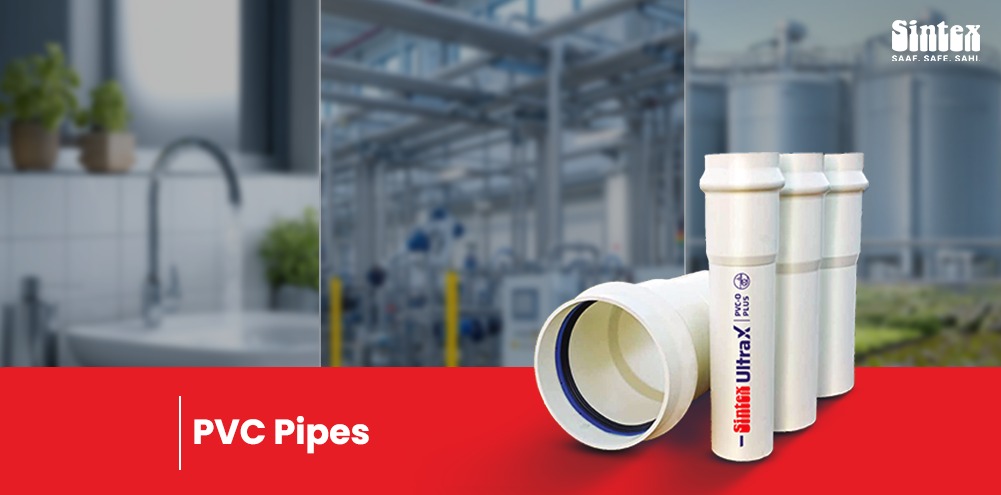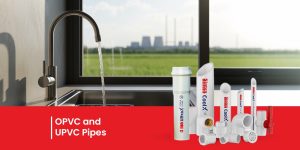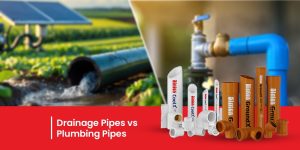Unlocking the Versatility of PVC Pipes: Top Applications You Should Know
Share

When most people hear pipes, their minds wander straight to plumbing drudgery. Say PVC pipes, and out of nowhere, the little tube turns into an underdog hero. Elbows, tees, reducers, couplers- you name it, the fittings pack the bends and branches every run of pipe needs. Pick the right piece, and instead of wrestling with flow directions, you save both minutes and leaks.
So stick around if you’re curious about PVC pipes, real-world tricks, hunting the perfect fitting, or simply price-shopping for your next gig. Well, straighten it all out.
What Makes PVC Pipes So Special?
First, PVC-short for Polyvinyl Chloride-is so light you can lift a stack with one hand, yet it resists almost everything. Rust, sagging, acids, UV, you name it; buried, bent, or baked, good pipe stays good for decades.
On top of that, snap-on joints let you cut, twist, and lock parts together without fancy gear or grout. Pro plumber or weekend fix-it champ, that mix of muscle and ease is why people love PVC.
And the best part? They’re super cost-effective. Top PVC pipe manufacturers make quality products that last long without draining your wallet.
Top Applications of PVC Pipes You Should Know
1) Home Plumbing That Works
Gone are the days of rusty metal pipes. Most modern houses now lean on PVC for drinking lines and waste drains. The stuff is quiet, tight-sealed, and rarely freezes or bursts.
From kitchen taps to bath drains, PVC is everywhere inside a house. With clever elbows and tees, twists and joins go together in seconds, not hours.
2) Irrigation Systems That Save Water & Time
If you farm, landscape, or even keep pots, you know how hard even rushing water can be. That is why sturdy, lightweight PVC is the go-to. Tubing forms drip rows, spray arcs, and nearly anything in between.
The pipe suits gentle garden misting or full-scale field flooding because it shrugs off UV rays and doesn’t rust. A related option is rainwater harvesting.
3) Rainwater Harvesting Systems
Sustainability starts with smart water use. More homes and buildings are setting up rainwater harvesting systems today. Guess. What keeps it all flowing? Yep, PVC pipes.
It gathers roof run-off, guides it through strong joints, and then stores it for later crops and chores. That setup is proving smart and green in growing Indian cities.
4) Underground Sewage and Drainage
So, where do toilet flushes or sudden downpours disappear? Most city wastewater and storm networks ride a buried PVC highway.
Because they resist harsh chemicals and hold up under pressure, PVC pipes whisk waste to treatment plants or dump sites without gurgles, leaks, or extra noise-and you never have to check on them.
5) Electrical Conduits That Keep You Safe
Not only does sewage pass through plastic tubes, but heavy copper cables run through PVC conduits, too. Those conduits guard hidden circuits in walls, slabs, and ducts by sealing wires away from flames, moisture, and scrapes.
Leading makers even test their lines for fire and impact so your house or shop stays lit and safe, day and night.
6) Industrial Use That’s Tough as Steel
Workers push liquids that would eat metal pipes alive inside refineries, plants, and some hospitals. Flexible, rigid PVC shrugs off acids, caustics, and solvents, moving them quietly from tank to tank without extra bracing or lining.
Best of all, bulk lengths and fittings cost a fraction of exotic alloys, so big jobs stay on budget while equipment stays protected.
PVC Fittings & Connectors: Small Parts, Big Role
Every piping system is only as strong as its joints. That is why PVC connectors and fittings matter as much as the pipes.
These little parts seal your pipe plan, from elbows and tees to reducers and couplers. Turn a corner or split into several lines; the right fittings keep everything flowing smoothly.
Why PVC Pipes Are the Go-To Choice Today
Still deciding if PVC suits your job? A glance shows why nearly every contractor carries them:
| Feature | Benefit |
| Corrosion Resistant | No rust, no breakdowns, no surprises |
| Lightweight | Easy to carry, cut, and install |
| Long Lifespan | Most last 50+ years with zero maintenance |
| Affordable | Great value without compromising on quality |
| Chemical Resistant | Ideal for both home and industrial use |
| Versatile Sizes | Available in multiple diameters and wall types |
| Leak-Proof Fittings | Smart joints for a hassle-free finish |
Whether plumbing a bungalow or setting up a city’s water supply, PVC pipes span every scale, every setting.
Things to Consider Before Buying PVC Pipes
Before you zip off to the store, keep these pointers close:
- Thickness matters: Pick the right pressure class, Class 2, 4, or 6 depending on the demands of your project.
- Use verified fittings: Join your pipes with fittings from a trusted brand and carry the right mark.
- Check the rating: look for ISI or ASTM marks if the line will sit underground or feed heavy equipment.
- Compare prices wisely: the lowest sticker is not always the best deal, so keep future trouble in mind.
When in doubt, consult trusted PVC makers so your money buys solid parts without a headache.
Wrapping Up
So, whether you are joining a hi-tech city grid, adding a few extra outlets at home, or just keeping the veggie patch alive, PVC pipe makes the whole job easier and tougher at the same time. Its ability to handle nearly any fluid and its friendly price tag means contractors and DIYers grab it without thinking.
At Sintex, good products empower good work. Check out our complete line of PVC connectors, fittings, and pipe systems designed to help you build faster, safer, and smarter. Well, keep your world flowing- one sturdy joint at a time.





